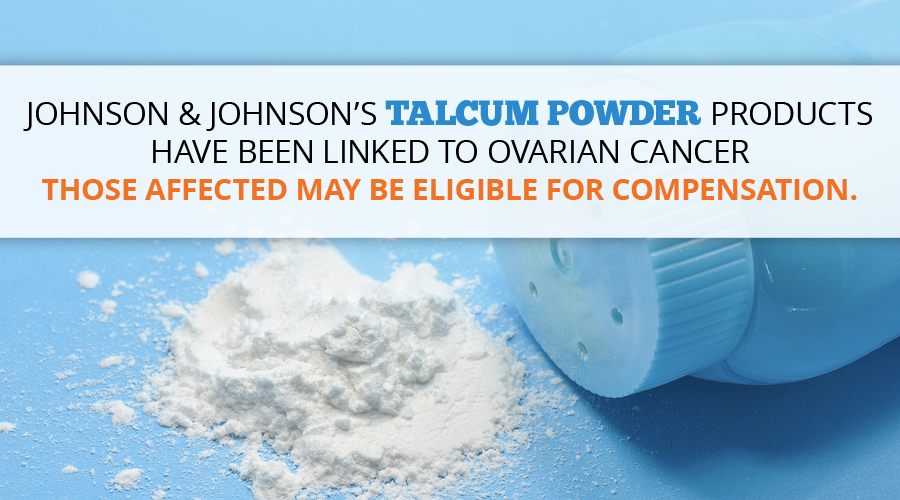Talcum Powder Lawsuit Information
Women who have used talc-based body powder for years for feminine hygiene purposes are now pursuing claims against Johnson & Johnson, alleging that the company knew about the potential for talcum powder to cause ovarian cancer, yet failed to provide adequate warnings about this risk to the public. The very first lawsuit brought against Johnson & Johnson for ovarian cancer complications allegedly caused by talcum powder was on behalf of Deane Berg, who turned down a $1.3 million out-of-court settlement from the pharmaceutical company in favor of bringing her case to trial in 2013.
In the years since Berg’s case, more than 1,000 women have filed complaints against Johnson & Johnson over ovarian cancer and other injuries allegedly caused by its talcum powder products, and some of these women have been awarded significant settlements, the most notable being a $72 million jury verdict awarded to the family of a 62-year-old Alabama woman who died from ovarian cancer after using talc-based body powder.


